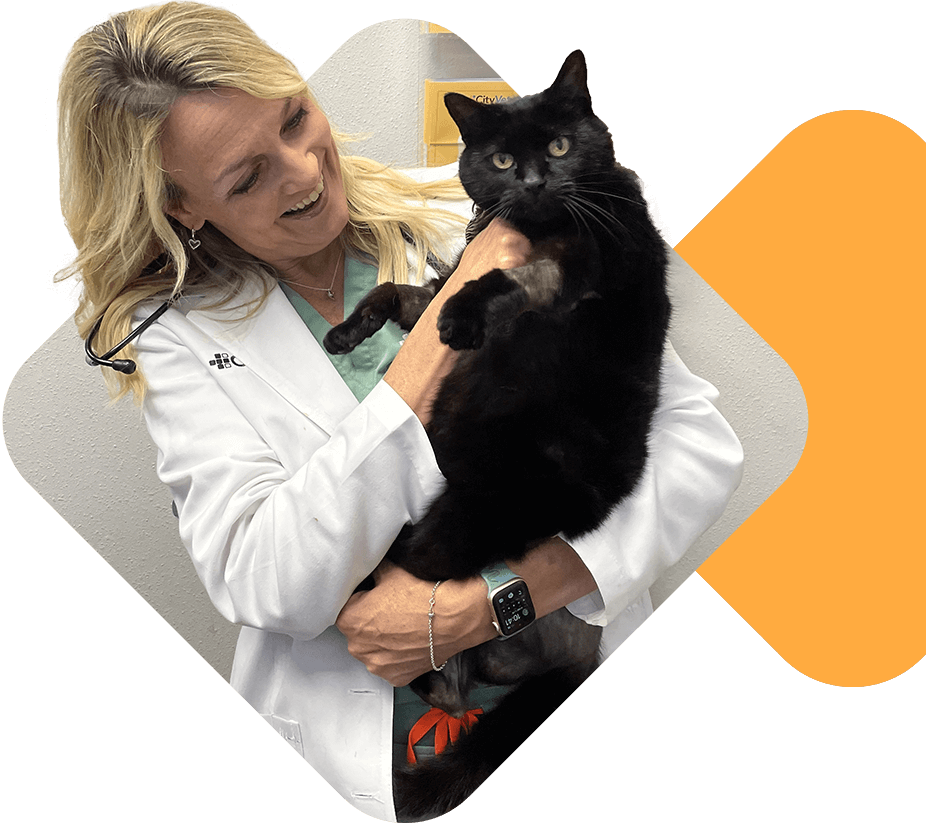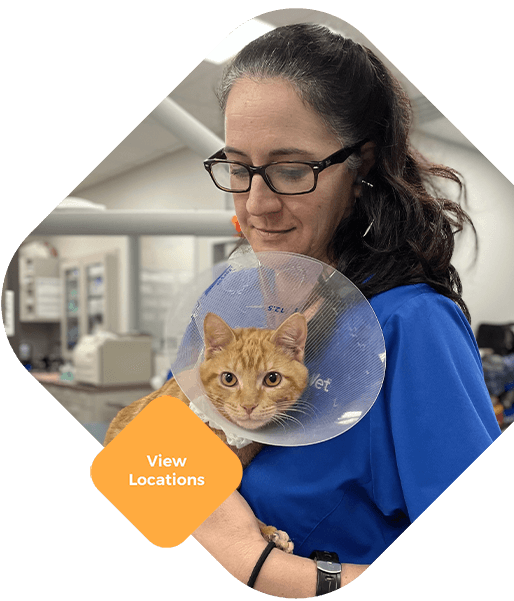We are pleased to offer you veterinary services at most of our locations for ferrets, lizards, hamsters, snakes, rabbits, guinea pigs, and other small but important pets.
Ferrets
Your ferret should be examined yearly by a veterinarian. A stool sample for parasite check should be submitted at the same time as the yearly check up. Vaccines are available for ferrets and can be discussed with you during your visit.
Common problems associated with ferrets include gastrointestinal disease (diarrhea), parasites and cancer. Ferrets are inquisitive creatures by nature and frequently ingest objects they shouldn’t. Any loss of appetite or abnormal behavior should alert you to a potential problem and the need for veterinary consultation.
Gerbils, Guinea Pigs & Hamsters
Your furry friends require veterinary attention too! You should seek veterinary attention if your pet stops eating, appears quieter than normal, exhibits discharge from the eyes or nose, and/or develops a lump on its body. Teeth grow continuously in these small animals and often require attention.
Iguanas & Other Lizards
These interesting and entertaining creatures are frequently presented to veterinarians for nutrition-related problems. We strongly advise you to set up a nutritional consultation with our veterinarians to discuss how you may best avoid these conditions.
All reptiles should have yearly examinations and parasite checks.
Rabbits
Rabbits are susceptible to a variety of conditions including hairballs, overgrown teeth, parasites and cancer. If your rabbit stops eating, appears overly quiet, experiences discharge from the eyes and/or nose, you should have him or her examined by a veterinarian.
Rabbits should be examined yearly by your veterinarian. Wellness blood testing and parasite checks may be recommended.
Other Exotics
We provide medical assessments and surgical procedures for a variety of other exotic animals including mice, rats, sugar gliders, pot-bellied pigs and hedgehogs. We see many diseases related to improper nutrition in these animals. Please talk to us about how to properly feed your pet as most of these diseases can be prevented with a fundamental knowledge of their nutritional requirements.




